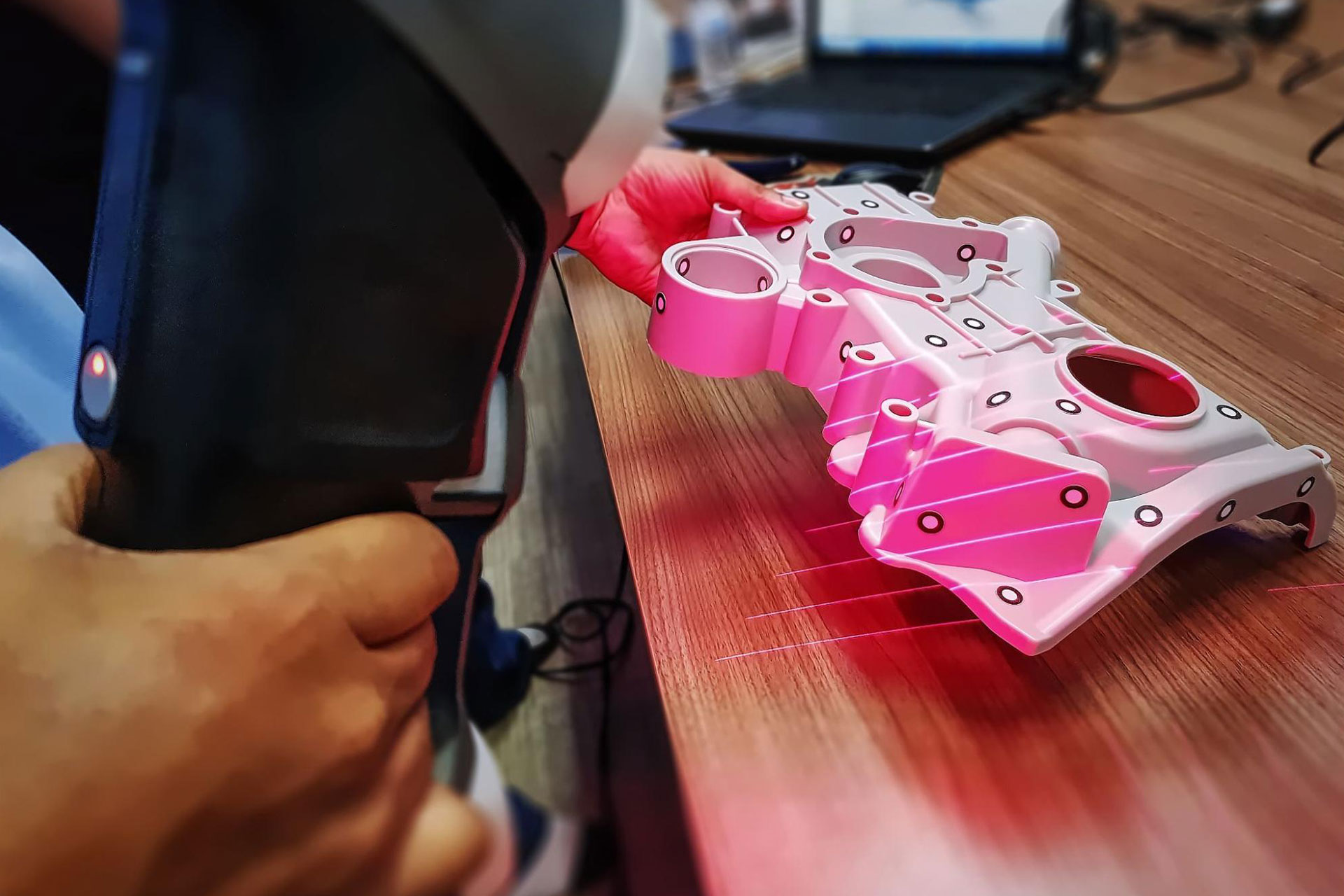6 Tips to Choose the Right 3D Scanner

If you’re diving into the exciting world of 3D printing, having the right 3D scanner is crucial for capturing precise digital models of physical objects. Whether you’re a professional in the field or a hobbyist, selecting the perfect 3D scanner can be a daunting task. With a myriad of options available, it’s necessary to make an informed decision. In this article, we’ll guide you through the process of choosing the right 3D scanner.
Related: 3D Printing vs. 3D Scanning: Knowing Their Differences
On This Page
Types of 3D Scanners
There are several 3D scanning technologies, each with its own set of advantages and limitations. Let’s explore some of the most common ones:
1. Laser Scanners
Laser scanners use laser light to capture 3D data. They are known for their speed and accuracy, making them ideal for various applications, including industrial use. However, laser scanners can be relatively expensive.
2. Structured Light Scanners
Structured light scanners project a pattern of light onto the object and use cameras to capture the deformation of the pattern, creating a 3D model. They are more affordable than laser scanners and suitable for smaller objects.
3. Photogrammetry
Photogrammetry involves taking multiple 2D images of an object from different angles and using software to reconstruct a 3D model. This approach is cost-effective and can work well for small to medium-sized objects.
4. Time-of-Flight Scanners
Time-of-flight scanners measure the time it takes for light to travel from the scanner to the object and back. They are suitable for both indoor and outdoor use, making them versatile for various applications.
Tips to Choose the Right 3D Scanner
1. Determine Your 3D Scanner Needs
The first step in selecting the right 3D scanner is to determine your specific needs. Consider the following:
● Application
The application of your 3D scanner is a critical factor. Are you using it for professional work, such as reverse engineering, quality control, or product design? Or are you a hobbyist interested in scanning objects for personal projects? Understanding your primary use case will help you choose a scanner with the appropriate features and specifications.
● Object Size
Consider the size of the objects you intend to scan. Some 3D scanners are designed for small objects, while others can handle larger items. Make sure the scanner you choose can accommodate the size of your typical subjects.
● Accuracy and Resolution
The level of accuracy and resolution required for your 3D scans will vary depending on your application. Professionals may need high-precision scanners, while hobbyists might be satisfied with less accuracy. Keep this in mind when evaluating scanner options.
2. Consider Portability
If you require a 3D scanner that can easily be transported to different locations, consider its portability. Some scanners are compact and lightweight, while others may require a dedicated setup. Portability can be a significant factor if you need to scan objects in the field or at various client sites.
3. Software Compatibility
The 3D scanner you choose should be compatible with the software you plan to use. Check if the scanner’s software is user-friendly and supports the file formats you need for your 3D printing projects. Take note that some scanners come with their proprietary software, while others are more versatile in terms of software compatibility.
4. Budget and Cost
3D scanners come in a wide range of prices, so it’s important to establish a budget before making a decision. Yes, it can be tempting to opt for the most expensive scanner with all the bells and whistles, but it’s still crucial to find balance between your budget and the features you need.
5. Check Reviews and Recommendations
Before making a final decision, it’s a good idea to read reviews and ask for recommendations from others in the 3D printing community. Online forums, social media groups, and industry websites can provide valuable insights and user experiences to help you narrow down your choices.
6. Take Into Account the Warranty and Support
Don’t overlook the importance of warranty and support when choosing a 3D scanner! Check the manufacturer’s warranty and customer support options. Having reliable support can be a lifesaver if you encounter issues with your scanner down the road.
Looking for 3D Scanners in the Philippines? Contact us today to know more about our products!


